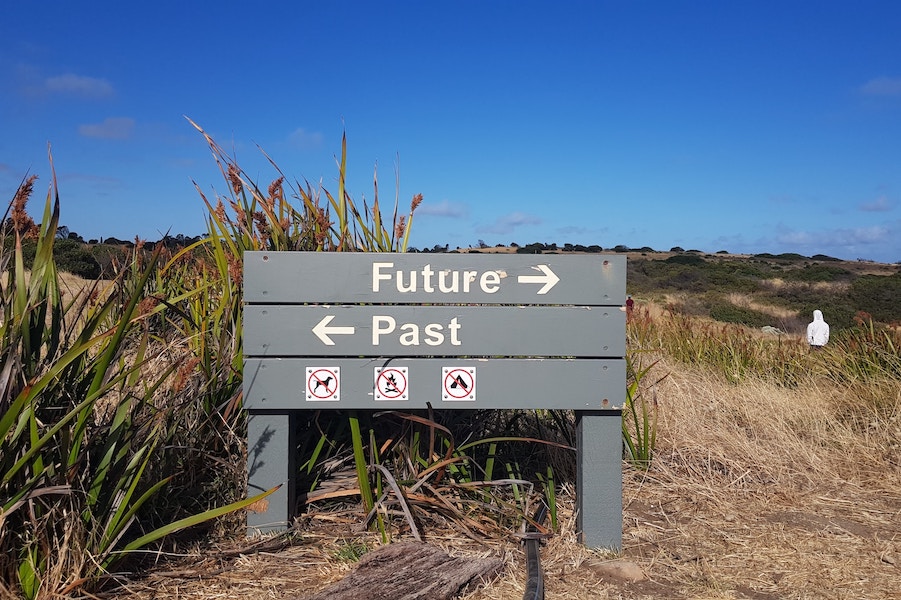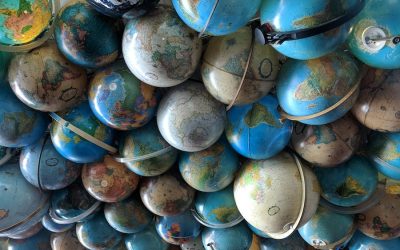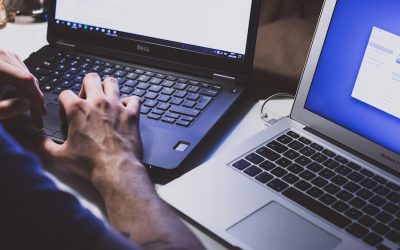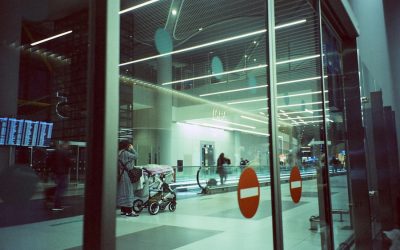Three strategies for civic education. Part 1
Sonya Smyslova, Ella Rossman
Photo: Conversation about the desired future is particularly relevant for Russia today, including in anti-war efforts. Photo by Hadija on Unsplash
Civil Projects
Russian independent educational projects have a long and complicated history, including those involved with civic education—instruction not in a particular profession or discipline, but rather in a series of skills citizens require in order to participate in public and political life.
In today’s Russia, civic projects such as the Free University and the New School of Political Science are tackling important new issues:
- opposing dictatorship and indoctrination in the sciences and education
- preserving scientific and educational communities destroyed by war and repression
- creating spaces to process the ongoing changes and discuss alternative paths of development for Russian society and the entire region.
Education as a Microcosm of Society
At the same time, those engaged in civic education sooner or later encounter the problems described by Pierre Bourdieu and Jean-Claude Passeron in their book Reproduction in Education, Society and Culture.
Without concerted efforts to prevent this, the educational space begins to reproduce the rules and structure of the external society. The learning environment replicates existing inequalities through the structure and content of its curriculum, the teaching materials used, the way exams are given, and the general code of conduct.
In this sense, civic education risks becoming a microcosm of the surrounding society. In the case of Russia, we are dealing with an authoritarian regime with weak democratic institutions, censorship, and a fragmented civil society. This cannot help but affect the educational space.
Education as an Alternative
How should we organize our educational system when the state of society seems imperfect? Can education provide an alternative and function as a civic development project?
In this essay, we analyze strategies that might help the education system overcome and rethink unjust social structures rather than imitating them.
We turn to Russian and foreign examples in education, art, and activism. We deliberately go beyond purely educational cases, as artists and activists can offer many valuable methods and approaches for those involved in educational projects.
We believe that it is useful for civic education to develop not just with a focus on the experience of artists and activists, but also in direct interaction with them, as well as with local communities.
However, it is difficult to build these connections when classes are held exclusively online—yet this is the format of many modern Russian civic education projects.
First Strategy:
Deconstructing the Hidden Curriculum
Researchers at critical pedagogy schools have demonstrated that structural inequality in education is often reproduced through the so-called “hidden curriculum.” The term was coined by American sociologist Philip Jackson, author of the book Life in the Classroom (1968)— although earlier researchers had, of course, written about unwritten rules, practices, and presets in education.
Deconstructing the hidden curriculum in adult civic education requires a collaborative rethinking of the established norms and hierarchies that teacher and students alike have brought with them to the classroom—and intentionally changing them.
The Importance of Conflict
In his book Ideology and Curriculum, educational theorist Michael Apple conceptualized the hidden curriculum through conflict. How the school teaches the child to resolve conflicts (and how the school itself, as a group of individuals and as an institution, participates in overcoming conflict) will determine how ready the child is to achieve their own goals in the future.
Apple believed that interaction between all members of society entails a state of constant and—most importantly—natural conflict. A sense of injustice plays a large role in this conflict. This is a normal feeling for anyone to experience, especially a child not yet “socialized for injustice.” If a school teaches children to avoid conflict—to “be comfortable”—and forces them to accept instructions they believe are unfair, it thereby educates them to accept the current status quo. Thus, it deprives students of the opportunity to change society for the better through conflict.
In a model concerned with deconstructing the hidden curriculum, there will be discussion of the importance of conflict and an attempt to change the approach to conflict in the classroom.
“Fight With Me”
One example of a Russian citizen-led initiative that challenged our understanding of conflict is a 2020 series of protest performance pieces done by artist and activist Katrin Nenasheva entitled “Fight with Me.”
Nenasheva set up a table in apartment courtyards around St. Petersburg and invited residents to discuss any topic with her in any manner, including outright aggression. The artist wanted to draw attention to the issue of domestic violence, which became particularly acute during the period of COVID self-isolation.
But it seems to us that the scope of this piece reaches far beyond the confines of this theme. “Fight with Me” returned conflict to the city and public life, making it a point of departure for a full-fledged debate on social issues.
In some sense, this performance piece implemented the “agonistic” model of democracy proposed in the works of philosopher Chantal Mouffe. It created a space for debate on important social issues. At the same time, the value of continuing the interaction, despite the conflict, is affirmed from the beginning.
Katrin Nenasheva brought the quarrel and conflict of everyday life into the political sphere, while simultaneously illustrating the connection between these two environments. To paraphrase Mouffe, she directed her passion toward democratic projects.
The piece allows us to reflect on:
- what productive conflict in the educational sphere might look like
- how it can be modeled
- how it can itself become a tool for civic education
DOXA: Deconstruction and Dialogue
Of course, the hidden curriculum can have a broader interpretation than Michael Apple offers without focusing on conflict. Strategies for its deconstruction can also be more diverse.
For example, these might include analysis and direct conversations about how social hierarchies and norms are structured and function in the classroom and educational settings. This is what DOXA magazine has been doing for a long time.
Initially, it was a student publication of the Humanities Department at the Higher School of Economics. The magazine invariably evoked strong reactions from university employees and administrators. Nor was it just their pieces about harassment in the educational environment that incited this response, but also far more innocent articles such as “Worst Humanities Courses Offered at HSE in the First Semester of 2016-2017.”
DOXA’s work has demonstrated that an important component of the hidden curriculum in Russian higher education is a rigid power hierarchy, the vertical structure that places administrators over professors and researchers over students. Violation of this hierarchy, for example in the form of feedback and criticism from students, is perceived within the academic community as overstepping.
The practice of critical pedagogy emphasizes the importance of such a dialogue. It is able to influence both sides, enriching and developing them, creating a dynamic of change in both.
This foundational dialogue—which assumes that in the process of interacting with each other, the student is able to teach and the teacher is able to learn—becomes the basis for deconstructing the hidden curriculum.
Second Strategy:
Imagining an Alternative Future
The next strategy for working in civic education is the practice of imagining an alternative future—for example, a more equitable social order.
The Desired Future
In today’s Russia, conversations about the desired future may be perceived negatively, as a trait of a specifically Soviet brand of utopianism, which taints the topic with notes of repression. In reality, discourse about alternative systems—including utopian fantasies—extends far beyond the bounds of Soviet history.
Utopias and visions of the future have been vital for political groups and individual thinkers from a variety of backgrounds. It seems that without these, it is generally quite difficult to formulate one’s own position and establish political subjectivity.
Conversation about the desired future is particularly relevant for Russia today, including in anti-war efforts. As the latest report from the sociologists at the PS Lab shows, Russians are largely supportive of the war in Ukraine not because they agree with its mission, but because they see no alternative to the current state of affairs.
“Utopian Circle”
An example of how civic education can create a platform for discussing an alternative future was the Russian-language online project Utopian Circle, which ran from 2020 to 2021.
The Utopian Circle presented itself as an independent educational community focused on discussing alternatives to the existing social order. The Circle was organized by Anastasia Kalk, Anastasia Khibukhina, and Maria Potudina, in collaboration with a group of professors who taught seminars on the critical theory of capitalism, the history of feminism, queer theory, radical ecology, and other topics.
Anastasia Kalk, co-founder of the Circle, is writing her dissertation on the history of the commune and other alternative ways of organizing life, exploring the work of philosophers from different countries and political traditions, from French utopians to Russian populists.
Active Daydreaming
The Utopian Circle was distinguished by its thoughtful attitude toward discussions about feminism, with an emphasis on feminist optics. This, in our opinion, was not at all accidental.
The history of the women’s movement in different countries is, among other things, the history of a diversity of civic education projects. These projects functioned as spaces for alternative politics and social imagination. For a long time, women without access to formal higher education institutions created grassroots educational projects not only to gain missing knowledge, but also to discuss their position and define the future they were fighting for.
The history of feminism and the struggle for equal rights is replete with examples of interest to those who develop civic education projects, from the Russian Women’s Mutual Charitable Society in the Russian Empire at the end of the 19th century to the modern non-profit organization the Afghan Institute of Learning, which has continued to work with Afghan women remotely since the Taliban have come to power.
An important feature of projects like these is the practice of “active dreaming,” in the words of Paulo Freire—that is, the purposeful combination of utopian thinking and concrete practice that brings the imaginary to life.
The Ideal Future
The Russian Women’s Mutual Charitable Society and the Afghan Institute of Learning are two extremely different cases. At the same time, they are united by common goals that go beyond the propagation of knowledge among women. Their founders had a more global mission—to create conditions under which women could develop a new political subjectivity and thereby gain greater mastery of their own destiny.
As scientist and publicist Maria Bezobrazova, an active member of the Russian Women’s Mutual Charitable Society, wrote: “the ideal future is a wide variety of different female types, as well as male ones, as the result of freer development.” The Society tried to achieve this diversity with the help of, among other things, seminars and clubs, from their “Ethics Circle” to lectures on the natural sciences and discussions of social topics. For students, it was a kind of small-scale women’s university—an ideal model of an educational space that is friendly to women and allows them to develop.
A similar space is being created by the organizers of the Afghan Institute of Learning, which invites students to take part in not only classes on reading, writing, and mathematics, but also an environmental issues discussion circle, a poetry group, and art classes—that is, going far beyond simply spreading functional literacy to develop a space in which for people to use their imaginations and comprehend their own experiences.
Sonya Smyslova is an education researcher, a curator of educational programs, and a PhD student at the University of Cambridge.
Ella Rossman is a historian, doctoral student, and lecturer at University College London, as well as former co-founder of the independent “Anti-University” educational project.





0 Comments